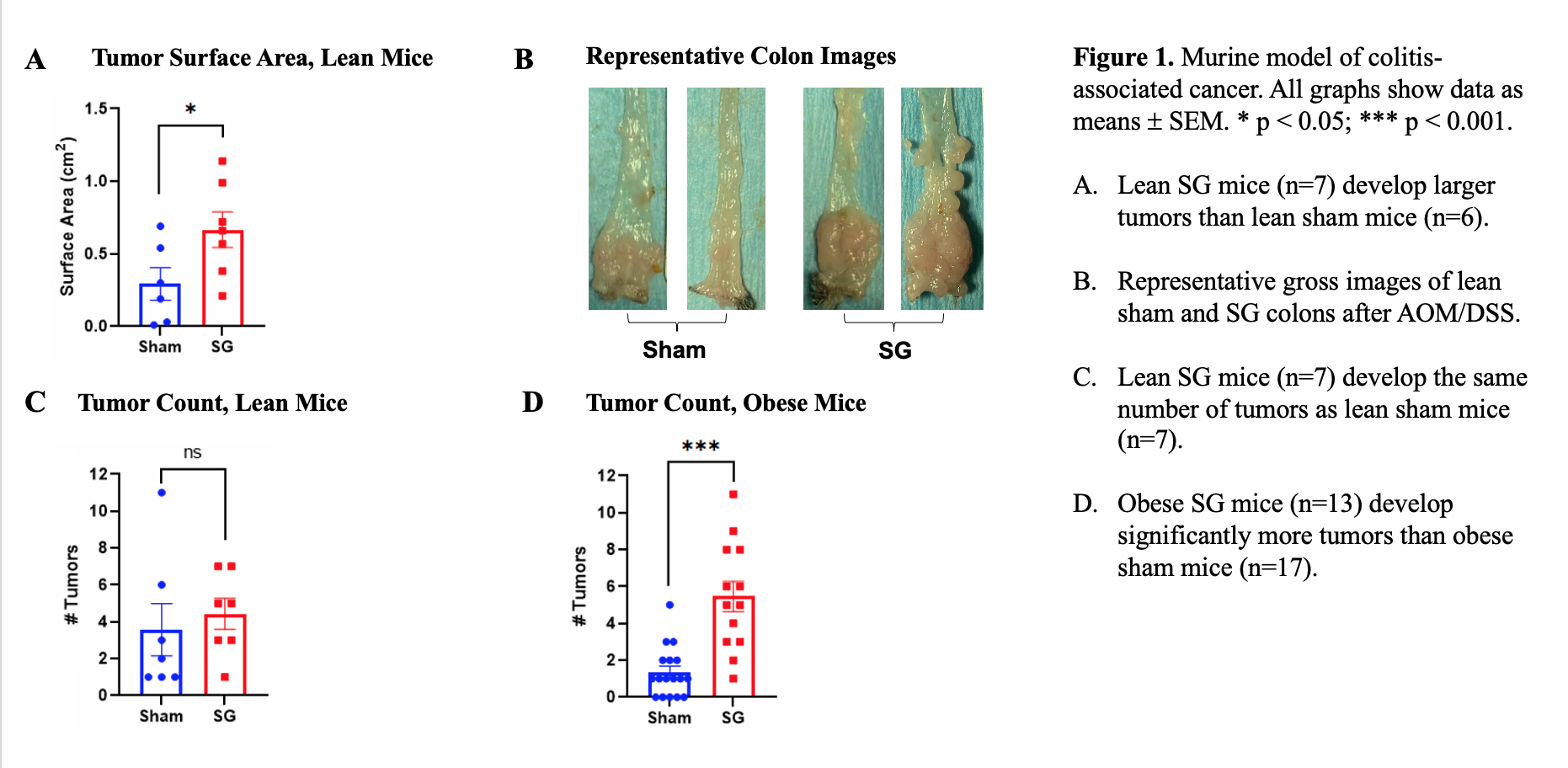Title: Sleeve Gastrectomy Increases Colitis-Associated Colon Tumor Growth Independent of Diet
Cullen F. Roberts, Andrei Moscalu, Mehran Karvar, James N. Luo, Alexander Hu, James Yoo, Ali Tavakkoli, Eric Sheu
Surgery, Brigham and Women's Hospital, Brookline, Massachusetts, United States
Objective: We have previously found that sleeve gastrectomy (SG) causes increased numbers of tumors in a diet-induced obesity mouse model of colitis-associated cancer (CAC). Here we examine the effects of SG on CAC in lean mice fed a regular diet.
Design: Pre-clinical randomized control trial. Duration of follow-up was 111 days after surgery and 76 days after initiation of CAC.
Setting: Pre-clinical laboratory animal facility
Patients or Other Participants: 12-week-old lean C57BL/6J mice were maintained on a normal chow diet and randomized to SG (n=12) or sham (n=8) operation. Five lean mice undergoing SG and one lean mouse undergoing sham operation were withdrawn for adverse effects.
Interventions: At 12 weeks of age, mice underwent SG or sham operation. SG was performed via laparotomy with stapled gastrectomy removing approximately 70% of the stomach. Sham operation was performed via laparotomy with mobilization of the stomach and division of the short gastric arteries. Five weeks postoperatively, CAC was established via one-time injection of azoxymethane (AOM) followed by two week-long periods of dextran sulfate sodium (DSS) administration.
Main Outcome Measures: The number of colonic tumors and total tumor surface area were measured at sacrifice 46 days after DSS withdrawal and compared using Welch's t-test. Colitis severity was scored from 0-12 during DSS cycles by measuring weight loss, stool consistency, and hematochezia.
Results: CAC tumors were significantly larger in lean SG mice compared to sham mice (0.67 cm2 vs 0.29 cm2; p=0.046; Figure 1A, 1B). However, lean SG mice developed similar levels of colitis as sham mice (maximum colitis severity 4.7 vs 4.1; data not shown) and similar numbers of tumors (4.4 vs 3.6; p=0.61; Figure 1C). In contrast, in obese mice, SG leads to increased tumor numbers (5.5 vs 1.4; p=0.0003; Figure 1D) as well as increased colitis severity and larger tumors (data not shown).
Conclusions: SG increases tumor size in a mouse CAC model independent of diet and obesity. SG-induced increases in tumor number and colitis severity are present in diet-induced obese but not lean mice. These data suggest that surgery, diet, and obesity have distinct roles in colon cancer initiation and growth.

Back to 2022 Abstracts
